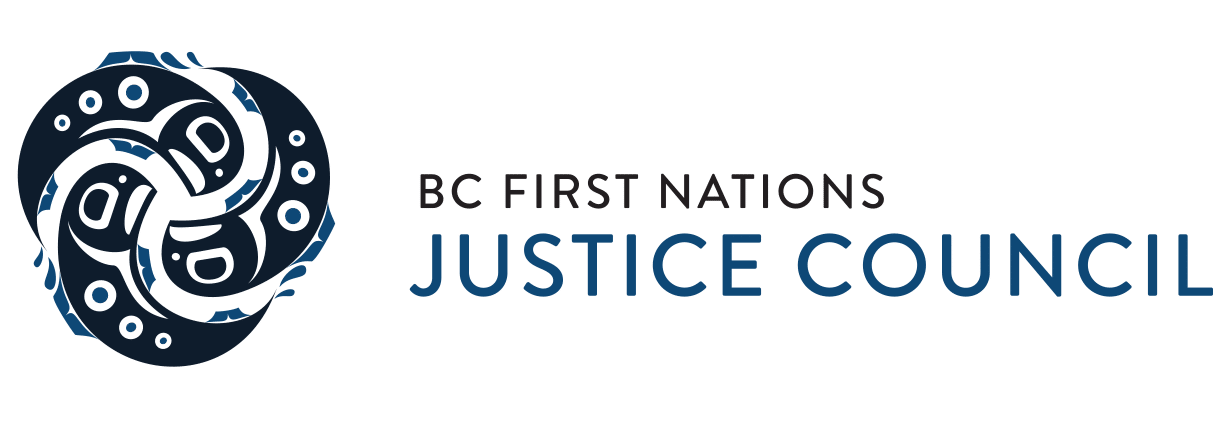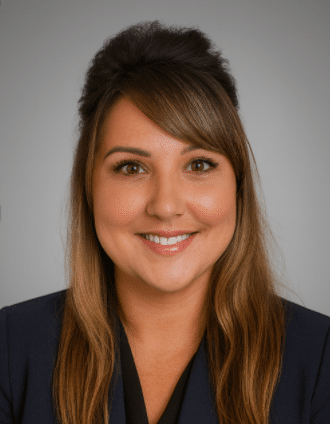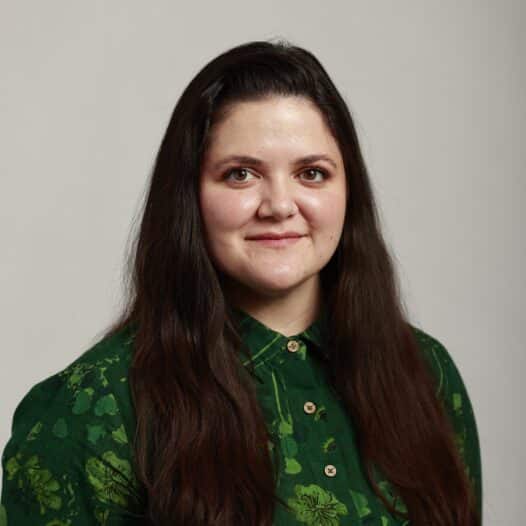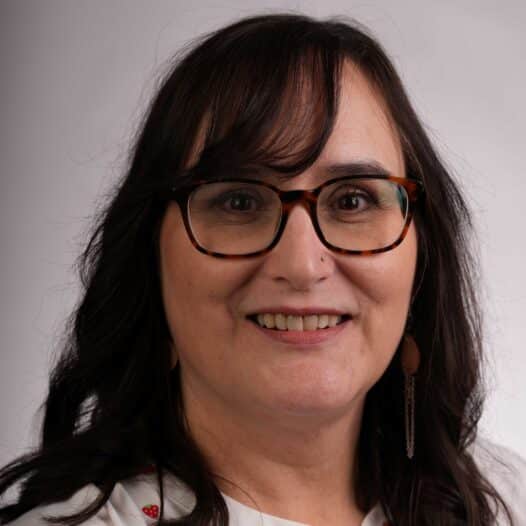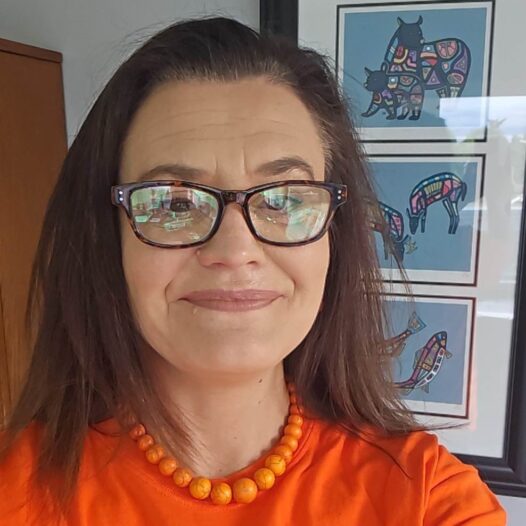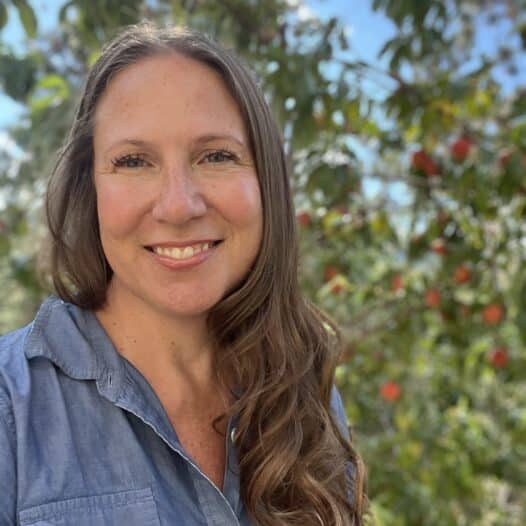

Kimberly Behr (Gee)
Kimberly Behr (Gee) is a practicing lawyer in BC and serves the BCFNJC in the role of Counsel, Information Management. Records and information are key assets for every organization that require management in accordance with industry standards.
With a personal passion for legal technology, knowledge sharing, and privacy issues, Kimberly welcomes opportunities to discuss the importance of First Nations data sovereignty, responsible information stewardship, and legally compliant recordkeeping.
Kimberly gratefully lives in the traditional and unceded territory of the of the Syilx Nation in Peachland, BC. She graduated with a Juris Doctorate degree from Thompson Rivers University in 2019. Prior to attending law school, Kimberly secured her Master’s Degree in Public History from the University of Western Ontario and was an Archivist. She later assumed the position of Records Management Supervisor at a First Nation government for many years where she led a transition from paper to electronic recordkeeping systems. Her past experience includes an internship in New Zealand and working with Westbank First Nation (Kelowna, BC), ‘Namgis First Nation (Alert Bay, BC), and the Upper Skeena Counselling and Legal Assistance Society (Hazelton, BC).
Kimberly also has an interest in restorative justice. A Gladue report writer from 2017-2022, Kimberly co-created healing plans alongside her Indigenous clients located throughout BC. Kimberly has seen firsthand the transformative results that Gladue reports can support in providing a holistic, culturally-relevant approach to justice that prioritizes accountability, healing, and relationship building over punishment.
The most rewarding work in Kimberly’s career has been, and continues to be, her work with and for Indigenous peoples. She is reminded regularly of the resiliency, humour, and strength of Indigenous peoples in her daily life.
Kimberly takes great pride in the opportunity to contribute to achieving better outcomes for Indigenous people in their interactions with the justice system and supporting Indigenous self-determination through the delivery of the BC First Nations Justice Strategy.
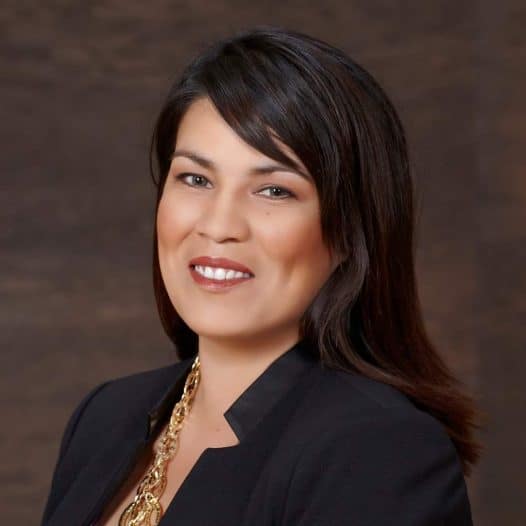

Lisa Abbott
Cree lawyer, Lisa Abbott, gifted with the Indian name, Thunderbird Woman Who Travels Through Land. She is from the Treaty Six Territory and member of the Pelican Lake First Nation, and a very proud mother of two beautiful indigenous daughters. She feels privileged to be a visitor, who is working and living, in the lower mainland of British Columbia, in the traditional and unceded territory of the xʷməθkʷəy̓əm (Musqueam), Sḵwx̱wú7mesh Úxwumixw (Squamish), səl̓ilw̓ətaʔɬ (Tsleil-Waututh), QayQayt First Nation, Kwantlen, q̓íc̓əy̓ (Katzie), Semiahmoo, Tsawwassen First Nations, kʷikʷəƛ̓əm (Kwikwetlem), and Stó:lō Nation.
Lisa earned her LL.B, Bachelor of Laws, from the University of Saskatchewan in 2005 and was called to the Ontario and Saskatchewan Bars in 2010. She has worked for the Native Women’s Association of Canada (NWAC), the Assembly of First Nations (AFN) and the Federation of Sovereign Indigenous Nations (FSIN) before starting her own law practice, in 2010. For over a decade, she has grounded her legal practice on a deep commitment and passion for access to justice and toward ameliorating the intergenerational impacts of colonization and assimilation.
As a staunch advocate for culturally relevant trauma-informed lawyering, she has assisted hundreds of former students through the Indian Residential and Federal Indian Day School claims processes and represented clients in both Criminal and Family/Child Protection legal systems. She has advocated for her clients at the Provincial Court, Queens Bench and Federal Court levels. Lisa’s legal career, to date, has uniquely prepared her to be a champion for the transformative change envisioned by the BC First Nation Justice Strategy and she is so pleased to join the team as a Staff Lawyer with the Virtual Indigenous Justice Centers.
On her free time, she is exploring local farmers markets, cooking for her adult daughters (who may never move out) or hiking one of the many vast trails in and around the lower mainland Vancouver with her dog, Chewie.
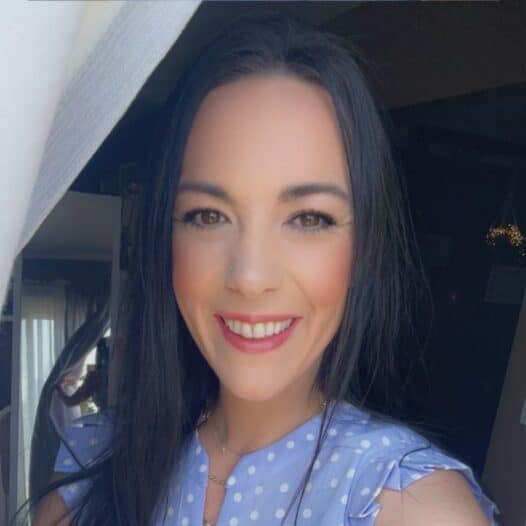

Nicole Amstutz
Nicole is a Metis from Cree decent woman, who proudly lives, learns and plays on the traditional and unceded Homelands of the Dënéndeh Nation. Nicole has called Fort St. John home since October of 2017 and has found deep connection to the lands, people and communities in the beautiful northern region.
Through lived experience Nicole realized at a young age that systemic oppression and colonial violence not only affected her but so many people, and that the only way to help was to be actively involved on the front lines of advocacy and change.
Nicole Has a background in social work, specifically Indigenous Human Services where she graduated on the Deans List and was given recognition and an award for outstanding student achievement, Early Childhood Education and last but not least Restorative Justice.
Nicole hopes to continue her education in the Indigenous Legal sector and dreams to pursue a Joint Canadian Common Law and Indigenous Legal orders degree in the future at the University of Victoria.
Nicoles greatest passion is her Children, Nicole is a dedicated mother to her 5 children. Starting a family at a young age gives Nicole an ample range of duties and activities with her children, her eldest child being a young adult in his 20’s her middle children being 15, 9 and finally her youngest children being twins under 2.
When Nicole is not busy being mom and working you can find her on a baseball diamond which she describes as her own personal church “there’s nothing more peaceful then hearing the ting of a bat connect with a ball or the sting on your hand from great catch “In the winter months Nicole practices archery and is “working on her aim”.
Nicole loves random weekend road trips to Costco where she can be her one-person band, singing off key loudly and likely embarrassing her kids while grooving at stop lights… Nicole is honored to learn from, work for and be a part of the motions of change that BCFNJC is enacting and bringing to our futures.


Christine Bagara
Christine (she/her) is a Legal Assistant at the Vancouver IJC. She is a first-generation immigrant from the Philippines, growing up in Surrey and now residing in ‘Vancouver’ on the unceded traditional territories of the xʷməθkʷəy̓əm (Musqueam), Sḵwx̱wú7mesh (Squamish), and Sel̓íl̓witulh (Tsleil-Waututh) Nations.
Christine holds a Bachelor of Arts from the University of British Columbia with a major in Political Science and a minor in Law and Society. Here, she first fostered her passion for learning about systemic injustices, namely within the colonial justice system in Canada. Christine worked for two years at a boutique law firm assisting with family and child protection cases and volunteered for two years at the Downtown Community Court aiding with criminal cases. Coupled with her many years previously working in various customer service roles, Christine greatly values meaningfully understanding and communicating with clients from diverse backgrounds. She is passionate about providing a just and empathetic experience for clients implicated within the complex legal system.
Outside of work, Christine is an avid rock climber. Namely, she enjoys bouldering in indoor gyms. During the warmer seasons, Christine also enjoys spending time outdoors bouldering, hiking, and running.
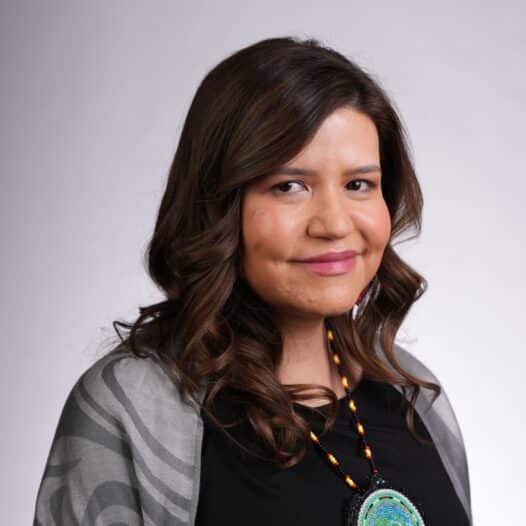

Kirsten Barnes
Kirsten is a Gitxsan-Tsimshian lawyer and was born and raised in her home community of Gitanmaax. She joined the BCFNJC as a Policy Lawyer in January 2023, and now holds the title of Indigenous Justice Centre Clinical Director. Prior to which she practiced law at Callison and Hanna Indigenous Advocates for 6 years. Kirsten worked exclusively for Indigenous clients in diverse areas of the law with specific focus on Aboriginal Title and Rights, the application of Indigenous laws in child protection and family matters, First Nations economic development, and Indian Status appeals.
Kirsten holds a BA and B. Ed. from the University of Northern British Columbia and a J.D. from UBC Allard School of Law with a dual specialization in Aboriginal Law and Social Justice. Kirsten’s current areas of focus at the Justice Council include, the intersectionality of Indigenous child welfare and youth justice, policing, the resurgence of Indigenous Legal Orders, and the development of community-based justice programming.
Kirsten is honoured to work on the unceded and traditional territories of the Skwxwú7mesh Úxwumixw (Squamish Nation), xʷməθkʷəy̓əm (Musqueam), and səl̓ílwətaʔɬ (Tsleil-Waututh Nation), in addition to the Syilx Nation (Westbank First Nation).
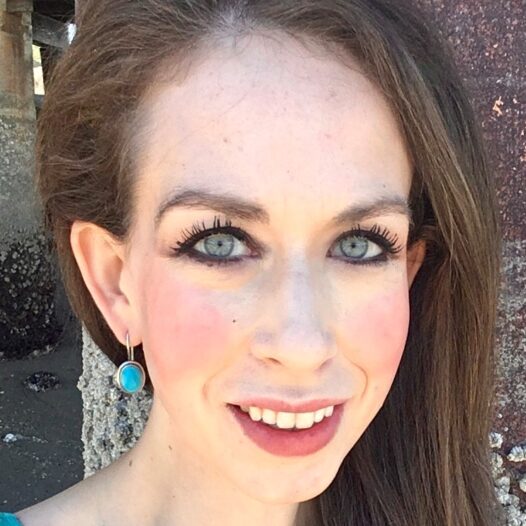

Rachel Barsky
Rachel holds a Bachelor of Journalism (Honours) from the School of Journalism at Toronto Metropolitan University (formerly Ryerson University) as well as a Juris Doctor from the University of British Columbia.
Rachel has been a lawyer since 2014, following her articles at a national firm in Vancouver and her completion of a clerkship at the Alberta Court of Appeal. She has focused primarily on criminal justice law and policy, particularly involving claims of wrongful conviction. She is also experienced in research law and analysis in various areas of civil and commercial law. She has been named one of Canada’s 25 Most Influential Lawyers by Canadian Lawyer Magazine.
Through more than a decade of work on R. v. Tallio (the BC Court of Appeal case of Phillip Tallio, an Indigenous man who was convicted in the second-degree murder of his cousin in the Nuxalk community of Bella Coola, B.C. in 1983 and who continues to maintain his innocence), Rachel came to recognize the urgent need for reform in both the federal and provincial justice and correctional systems, particularly with regard to the overrepresentation of Indigenous individuals.
Rachel is grateful to live and work on the unceded territories of of the Skwxwú7mesh Úxwumixw (Squamish Nation), xʷməθkʷəy̓əm (Musqueam), and səl̓ílwətaʔɬ (Tsleil-Waututh Nation), as well as the Syilx Nation (Westbank First Nation).
In her spare time, Rachel enjoys oil painting, travelling with her partner, eating as much sushi and chocolate as possible, and spending time with family and friends (both human and canine).
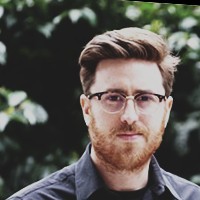

Curtis Bedwell
Curtis is an experienced policy analyst and advisor who is committed to supporting First Nations in advancing transformative change within the Canadian justice system and the strengthening of Indigenous justice systems in BC.
Curtis has several years experience working directly with First Nations and First Nations organizations as a consultant and employee. Curtis holds a B.A. (Honours) in political science from Simon Fraser University, and a M.A. in public policy and public administration from Concordia University.
Curtis is honoured to work on the unceded territories of the Skwxwú7mesh Úxwumixw (Squamish Nation), xʷməθkʷəy̓əm (Musqueam), and səl̓ílwətaʔɬ (Tsleil-Waututh Nation), in addition to the Syilx Nation (Westbank First Nation).
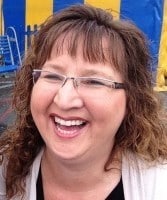

Linda Berg
Linda was born and raised in Chilliwack, and is a member of Douglas First Nations, part of the Stl’atl’imx Nation. In 2023, she completed an MBA with a specialty stream in human resource leadership. Prior to the MBA, she completed a Bachelor of Commerce degree, and she believes in lifelong learning.
Her professional background has been as an executive with First Nation governments and with non-profits, as well as previous human resource positions.
Since 2019, Linda has served as an Adjudicator with the Law Society of BC Tribunal. The LSBC Tribunal is an independent decision making body. It manages, considers and decides disciplinary cases involving legal professionals and contentious applications of licensing candidates seeking to practice law in British Columbia.
She enjoys travelling, taking courses, reading, movies, learning about different cultures, and taking road trips. Linda is honored to live, work and play on the unceded territories of the Syilx Okanagan Nation.
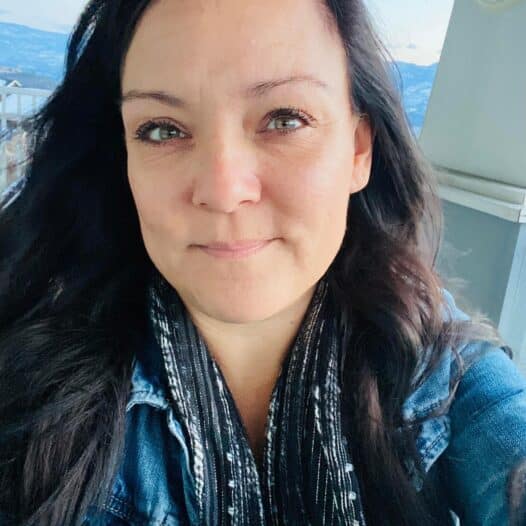

Robin Busch
Robin is a proud Metis woman who was born and raised in Edmonton, Alberta.
She moved to the Okanagan in 2018 and is grateful to live on the ancestral and unceded traditional territory of the Sylix Nation.
Robin began her career in accounting before devoting much of her time to being a stay at home mom to her five boys. It wasn’t long before Robin discovered her strength and passion for advocation and began working as an Educational Assistant supporting high needs students within the school system. Shortly after moving to the Okanagan Robin pursued her other passion for law and moved into the legal field working as an assistant for a personal injury firm committed to achieving justice for injured victims.
Robin is honored to bring her knowledge and experience to the BCFNJC as we work to effect meaningful change for Indigenous people within the justice system.
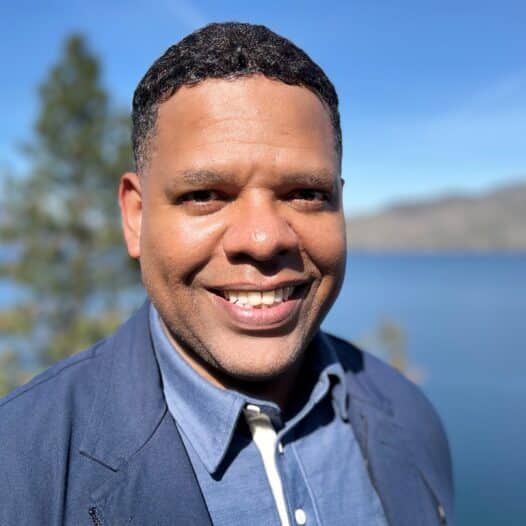

Carlos Cabrera
Carlos Cabrera is a procurement and inventory management professional from the Dominican Republic (D.R.), who goes by he/him pronouns. Born and raised in the D.R., Carlos comes from a family with roots in Europe and Africa. He is the second eldest among seven siblings who now reside in different parts of the world, including Canada, the United States, Mexico, and the Dominican Republic.
Carlos his wife Mehgan and daughter Carlani have recently moved to the Syilx Nation, where Mehgan grew up with her family in West Kelowna. Prior to joining BCFNJC Carlos had been running his own business in Victoria which he sold to return to the Okanagan in support of being closer to Mehgan’s aging parents. Carlos is incredibly grateful to be living and working on the beautiful traditional and unceded territory of Syilx Okanagan Peoples.
Carlos is deeply committed to achieving excellence in all aspects of his life and wants to make a difference in the world, one conversation at a time. He brings a rich background in procurement and inventory management from multi-national companies to manufacturing companies, and he is excited about the opportunity to contribute his expertise to the BC First Nation Justice Council’s important work. In his free time, Carlos enjoys hosting friends and family in his home, riding bikes with his daughter, and exploring new interests, like his family’s recent passion for pickleball.
Kaylin Cernak
Kaylin Cernak is a resource support worker based in Kamloops, BC, whose career is driven by a deep commitment to empowering others. Having grown up in foster care and navigated significant life challenges, Kaylin has always been determined not to become a statistic. Instead, these early experiences shaped a passion for helping people recognize their strength, resilience, and potential.
She holds a Professional Counselling Diploma and a Life Coach Diploma from Rhodes Wellness College and is currently continuing her education through Simon Fraser University. Since 2021, Kaylin has worked as an Employment Counsellor and previously served as a youth outreach worker. With personal experience and a career in social services dating back to 2016, she brings empathy, insight, and practical support to every role she takes on.
Outside of her professional life, Kaylin enjoys spending time with her partner and two children. She loves playing games, drawing, reading, and is currently learning how to bead. Through both her work and personal life, Kaylin strives to create connection, foster hope, and help others build meaningful futures.
Delanea Clark
Delanea is a dedicated mother and proud member of the Lower Nicola Band, Nlaka’pamux/Thompson Salish First Nation. Born and raised in Vancouver, she is grateful for the opportunity to contribute to the surrounding communities.
With 12 years of experience in the legal industry, Delanea has gained valuable expertise in corporate and securities law after graduating from Capilano University’s Legal Administrative Assistant program. She is committed to assisting Indigenous people with their legal matters and is currently in the final stages of completing her Paralegal Certificate.
Outside of work, Delanea enjoys participating in competitive soccer, a passion she has been pursuing for the past 27 years. Additionally, she takes pleasure in watching her teenage son compete in hockey throughout the year.
Delanea is honoured to join the BCFNJC, bringing their own knowledge and experience to support the remarkable mission and vision of the organization.
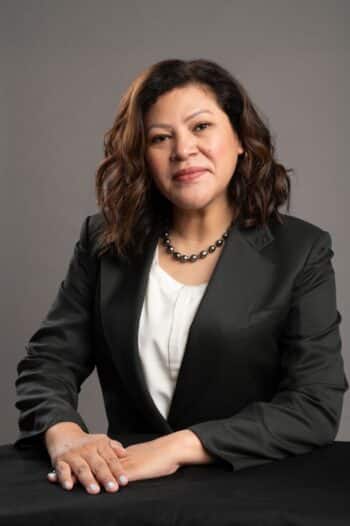

Beatriz Contreras
Beatriz Contreras obtained her LL.B. from Robson Hall at the University of Manitoba in 2002. After articling with a prominent Winnipeg-based law firm, she was called to the Manitoba Bar in 2003. She then relocated to Toronto, where she practiced primarily in the areas of family law, child protection, and immigration.
In 2010, Beatriz earned her Master of Laws (LL.M.) from Osgoode Hall Law School at York University. The following year, she moved to Victoria, B.C., where she continued in private practice until 2023. She subsequently joined the Ministry of Attorney General and currently works with the BC First Nations Justice Council (BCFNJC).
Beatriz has represented clients at all levels of court in both Ontario and British Columbia. She is an accredited mediator with the Law Society of British Columbia and brings extensive experience in high-conflict disputes as well as collaborative family law processes.
Beyond her legal practice, Beatriz is deeply committed to cross-cultural understanding and cultural competence education. She has delivered numerous presentations on these topics and has volunteered actively within and beyond the legal community.
Fluent in English, French, and Spanish, Beatriz enjoys traveling and engaging with diverse cultures, languages, and cuisines both within Canada and abroad.


Christina J. Cook
Christina J. Cook is a First Nations woman; specifically, she is Status Indian and a proud member of Brokenhead Ojibway Nation (signatory to Treaty #1).
Christina is a managing policy lawyer with the First Nations Justice Council. Christina was called to the bar in 2010. During her legal practice she has worked as in-house counsel for a large national insurer; private practice in both British Columbia and Manitoba; and most recently as a senior policy lawyer. Christina past experience is broad, including work in the areas of civil litigation, regulatory matters, and policy. She has appeared at all levels of Court in Manitoba and has appeared in the BC Supreme Court and BC Provincial Court.
Active in the community Christina has extensive board experience, community service and volunteer experience including Founder and Co-Chair of the Aboriginal Lawyers Forum (CBABC), Current Bencher of the Law Society of British Columbia, Director of the Pacific Association of First Nations Women, Past Chair of the Canadian Defence Lawyers D&I Committee. She holds her Bachelor of Arts from University of Winnipeg and her Bachelor of Laws Degree from University of British Columbia.
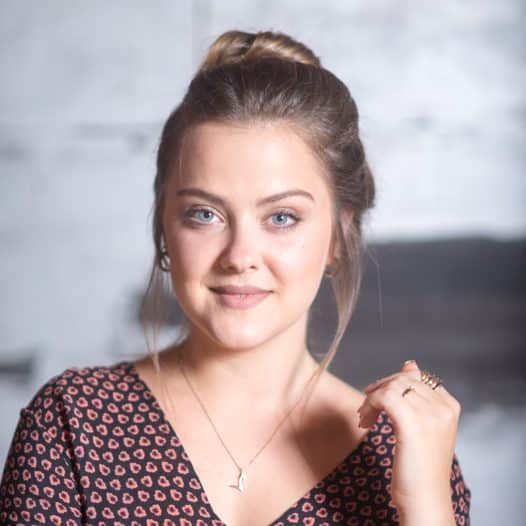

Clara Renault Teixeira Da Costa
Clara is a Brazilian lawyer who moved to Canada in 2021 and is currently pursuing a master’s degree in Public Policy and Global Affairs, in the University of British Columbia. After learning about the colonial impacts in the lives of Indigenous people in Canada, Clara became interested in learning more about First Nations history, culture, laws, and traditions. Having the opportunity to work as a senior policy analyst with BCFNJC is a great honor and an amazing learning experience for Clara.
Clara worked as an intern at the Prosecutor’s Office of Underaged Infractions, where she had the opportunity to get to know the socio-educational system. Worked as an Institutional Modernization Advisor at the Penitentiary Administration Secretariat of the State of Maranhão, one of the poorest states in Brazil, having followed the implementation of measures imposed by the Inter-American Court of Human Rights within the prison units of that state, which have already been considered the most violent in Brazil. She also has experience as teacher for children and teenagers living in the Brazilian favelas. Clara’s main interests are human rights, children’s and teenager’s rights, and gender equality.
Clara feels honored to live, study and work on the traditional unceded territories of the Skwxwú7mesh Úxwumixw (Squamish Nation), xʷməθkʷəy̓əm (Musqueam), and səl̓ílwətaʔɬ (Tsleil-Waututh Nation), in addition to the Syilx Nation (Westbank First Nation).
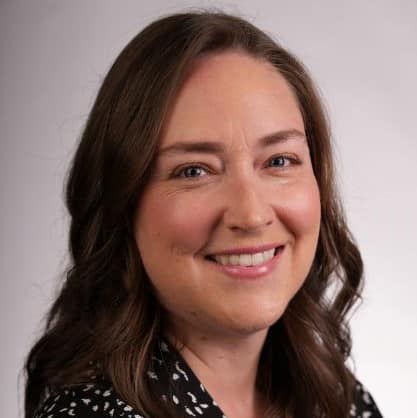

Courtney Daws
Courtney was born and raised on the unceded territories of the xʷməθkʷəy̓əm (Musqueam), Skwxwú7mesh Úxwumixw (Squamish), and səl̓ílwətaʔɬ (Tsleil-Waututh). She is an ally, practicing lawyer, and strategic advisor with almost 20 years of experience working with and supporting First Nations across the country on legal, policy, governance, negotiation and political matters related to advancing self-determination and transformative change.
Prior to joining the BC First Nations Justice Council as the Provincial Director for Legal Aid in 2023, and now the Director of Indigenous Justice Centre Governance and Legal Aid Transition. Courtney has held senior positions in the legal, political, consulting and social sectors, working for Indigenous peoples.
As the Director of Operations/Chief of Staff for five years at the BC Assembly of First Nations (2010-2015), and at the Assembly of First Nations – Yukon Region (2022-2023), Courtney had the opportunity to work with Indigenous communities in BC and the Yukon on strategic policy, governance and advocacy work – advancing First Nations’ positions in a number of areas including justice, governance, education, environment and climate change, Aboriginal rights and title, treaty rights, fisheries, child welfare and economic development.
As the Vice President, Governance and Policy, at Castlemain, Courtney led a large number of policy, program and governance review and development projects, as well as engagement projects with Indigenous communities and citizens over the course of six years (2016-2022).
Courtney has also practiced law at a boutique Aboriginal law firm where her work included Aboriginal rights and title litigation, modern-treaty negotiation, and leading community meetings with self-governing First Nations and incorporating that feedback to develop draft policies and procedures.
Courtney has a Bachelor of Arts (BA) in Sociology and a Bachelor of Laws (LLB), with a focus on Aboriginal law, both from the University of British Columbia. Courtney is a practicing member of the Law Society of British Columbia (called in 2005) and was the recipient of the 2020 YWCA Women of Distinction Award in the category of Reconciliation – Ally.


William DeWolf
William grew up within the ancestral, traditional, and unceded territory of the Lheidli T’enneh people (Prince George).
William attended law school at the University of New Brunswick (located within the ancestral, traditional, and unceded territory of the Wolastoqiyik/Wəlastəkokewiyik people) and graduated in 2013. William was called to the bar in 2014 and initially practiced law within the ancestral, traditional, and unceded territory of the Wet’suwet’en, Gitxsan and Tsimshian people (Smithers, Hazelton and Terrace), where he served many Indigenous clients.
Since 2017, William has been living and working within the ancestral, traditional, unceded territory of the Skwxwú7mesh Úxwumixw (Squamish Nation), xʷməθkʷəy̓əm (Musqueam), and səl̓ílwətaʔɬ (Tsleil-Waututh Nation) people.
William has practiced primarily in the area of family law, but also has experience in criminal law, child protection, civil litigation, wills and estate planning.
William is an accredited family law mediator, and advocates for alternative dispute resolution in most cases. William has seen the legal system fail his clients and inflict harm on Indigenous people. William believes re-asserting Indigenous sovereignty over the legal system and implementing Indigenous legal traditions can only improve the current legal system.
William is a strong proponent of children’s rights and has acted as Children’s counsel for the Society of Children and Youth of BC, advocating directly for the views and wishes of children in family law disputes.
William mentors junior lawyers, both formally and informally, to help them excel in their legal careers. William has both coached and participated in law school moots, including the Kawaskimhon moot, which is a consensus-based, non-adversarial moot that incorporates Indigenous legal traditions.
Prior to joining the BC First Nations Justice Council, William was a partner at a successful, progressive, boutique law firm. Although this was a positive experience, William realized he was not fulfilling his purpose or pursuing his passion and was honoured to accept a position with the BC First Nations Justice Council.
William is passionate about advocating for Indigenous people’s rights within the current legal system, and for First Nations to re-assert sovereignty and implement their own legal systems. William recognizes the failure and harm inflicted on Indigenous people by the current legal system, especially in the areas of criminal law, child protection, and family law. William believes in improving access to justice to all people and sees how the current legal system is often only accessible to people with wealth.
Outside of work, William spends most of his time chauffeuring his son to soccer games and practices. When William can find the time, and the snow, he enjoys taking his son skiing/snowboarding. William enjoys preparing meals for his family and taking family walks with his great Pyrenees dog.
Cedar W. Dodd
Cedar (he/him) is a lawyer with a strong background in litigation, project management and corporate matters. Cedar is a member of the Łı́ı́dlı̨ı̨ Kų́ę́ First Nation from Fort Simpson, Northwest Territories. Cedar holds a Diploma in Mechanical Engineering from the British Columbia Institute of Technology, a Diploma in Aboriginal Studies (with distinction) and Juris Doctor from the University of Victoria.
After graduating from BCIT Cedar worked in Vancouver’s hi-tech sector for companies such as Ballard Power Systems, SNC-Lavalin and Cummins-Westport. Cedar focused his engineering career on green technology and the development of emerging fuel systems. Upon graduation from UVIC Cedar formed Cedar W. Dodd Law Corporation, a boutique law firm with a focus on litigation. In his capacity as a lawyer Cedar has represented hundreds of clients in both the Provincial and Supreme Courts of British Columbia.
Cedar was born in Vernon, British Columbia and lived in Enderby until the age of 7 when his family moved to Vancouver Island. Cedar has three children, two daughters and one son. When not spending time with his family Cedar can be found either cooking, hunting, working on classic vehicles or exploring the outdoors.
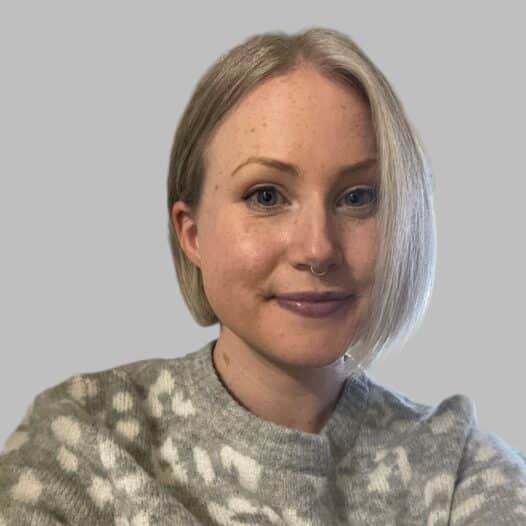

Kathleen Kerr Donohue
Kathleen is a settler who was raised on Gabriola Island but has spent most of her adult life living in Nanaimo (on the unceded territory of the Snuneymuxw First Nation).
After obtaining her undergraduate degree in criminology at Vancouver Island University, Kathleen attended law school at Robson Hall in Winnipeg, Manitoba. The criminology program at VIU, in particular, left its mark on Kathleen as it was there that she developed a deeper understanding of the ways that colonization, western imperialism, white supremacy and other systems of oppression work together to harm Indigenous communities across the globe, both historically and today.
While in law school, Kathleen focused primarily on criminal law and human rights law and worked as a research assistant for two criminal law professors where she was afforded the opportunity to contribute to a number of publications as a co-author. She was also active in a variety of volunteer groups including Pro Bono Students Canada where she was able to volunteer her time to organizations such as Winnipeg’s Public Interest Law Centre and Ka Ni Kanichihk.
After graduation, Kathleen remained in Winnipeg where she articled at a leading criminal defence firm gaining critical in court experience. Once called to the bar, Kathleen moved back to Nanaimo where she worked as an Associate in a law firm focusing exclusively on criminal defence.
Prior to joining the BCFNJC, Kathleen was still working in private practice. While incredibly grateful for the time spent at her previous law firm and the mentorship she received there, Kathleen recognized that the approach she wanted to take to the practice of law was, to a degree, incongruous within the confines of traditional private practice. She is very grateful to be a member of the BCFNJC team and is keen to assist the organization, however she can, in advancing their Justice Strategy.
In her spare time, Kathleen enjoys being outdoors and spending time with her husband, family and friends, as well as her pets (especially her dog). She is proud to be a first-generation university student, law student, and now lawyer.
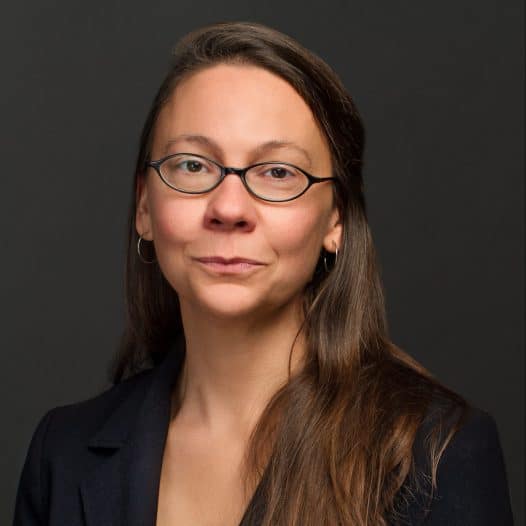

Lorna Fadden
Lorna comes to the BCFNJC with a strong interest in criminal law and parent-side child protection, bringing with her an understanding of how colonialism continues to perpetuate violence on her clients. Prior to being a lawyer, Lorna was a forensic linguist, whose work examined how Indigenous clients experienced the criminal system, from arrest to conviction, through to incarceration.
She is the author of Communicating Effectively with Indigenous Clients, and Aboriginal Legal Services Publication. It is available at the Continuing Legal Education Society of British Columbia.
Lorna is also a proud Métis mother and grandmother.
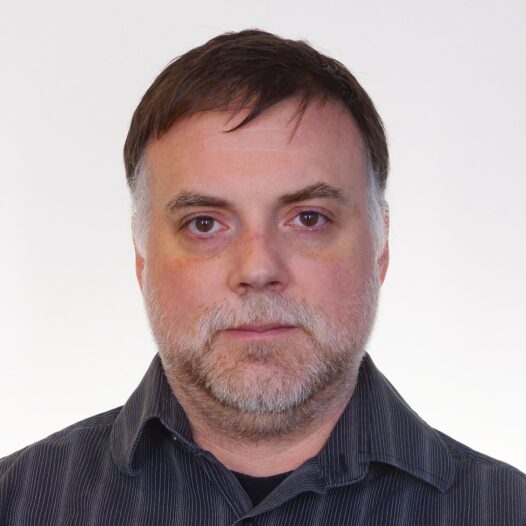

Aaron Felt
Aaron Felt was called to the bar in 2008. Originally from St. John’s, Newfoundland and Labrador, Aaron has dedicated his life to the pursuit of justice for people on the receiving end of state power. Early in his career, he clerked for the Newfoundland and Labrador Court of Appeal before completing a Masters Degree in Law from Dalhousie University in Halifax, Nova Scotia. For much of his professional life, Aaron directed his own law firm that specialized in criminal and family litigation.
As a litigator he has successfully argued at all levels of Court in Newfoundland and Labardor, including the Court of Appeal, where he was instrumental in expanding the scope of Gladue rights in his home province. Aaron also has many years of experience as an instructor in the Political Science department of Memorial University in St. John’s.
When not working, Aaron likes to split his time between exploring the natural world, listening to live music, and watching campy action movies.
Cassidy Fraser
Cassidy grew up on beautiful Salt Spring Island, the traditional territories of the Cowichan, Tsawout, Malahat, and Tseycum nations. Cassidy is a “half-smoked” Indigenous woman, with her Indigenous background being the Kitasoo Xai’Xais nation located in the Great Bear Rain Forest, in the town of Klemtu. Her heritage on her father’s side is Scottish, Irish, and Norwegian. Her traditional name is Misga’ah – Which translates to Lady Raven. She currently lives in Port Coquitlam, in traditional Kwikwetlem territory.
The idea of being “half smoked” comes from the first time Cassidy met her great grandma – who already knew then that Cassidy would have to spend her life navigating between two worlds. She has done so from a young age by being the student representative/signer for the Indigenous Education Enhancement Agreement in SD #64, Utilized her time in French Immersion to learn a second language and live in France for 3 months on a student exchange, and was a competitive swimmer, where through her hard work she obtained a regional record for Vancouver Island, multiple medals at various provincial competitions, and a spot on the 2014 BC team at the North American Indigenous Games (NAIG).
Following her passion for Criminal Justice and supporting Indigenous folks, Cassidy obtained a Criminal Justice degree from Langara College in 2018. In 2020, Cassidy gained invaluable experience working as an outreach worker for a women’s non-profit. During her time on the frontlines – especially during the COVID pandemic, gave her a true sense of how lacking resources are for Indigenous folks, how easy it can be for people facing multiple barriers can easily fall through the cracks, and how unfair the Criminal Justice system is, especially for Indigenous offenders. Cassidy hopes to continue being an advocate and providing resources for Indigenous peoples in need as a Resource and Support Worker out of the Surrey Indigenous Justice Centre (located on the traditional territories of the Semiahmoo, Katzie, Kwantlem, Kwikwetlem, Qayqayt, and Tsawwassen nations).
In her free time Cassidy is known to spend quality time with her friends exploring the local music scenes, cuddling her two cats, watching loads of TV shows and movies, and exploring the beautiful places Earth has to offer.
Renée Di Giacomo
Renée Di Giacomo (she/her) is an expecting mom, a bonus mom, a dog mom, a partner, an auntie, a sister, a daughter, a niece and cousin from the Chawathil First Nation. She currently resides on the unceded Homelands of the Sto:lo Coast Salish peoples, in Chilliwack, BC.
Her Indigenous side is on her Mom’s side, of which whom she met later in life, upon coming home. Renée has since met many Aunties, Uncles and cousins that have built a bridge to her community that has been missing for so long. Born in Vancouver and raised in North Delta in an active foster home for Indigenous youth with special needs she learned adaptability from those she came to share her home with over the years.
Growing up, Renée’s interest in finding a way to pay it forward always kept her engaged with volunteer opportunities and eventually led her to many of the roles she took on as an adult. In deep gratitude for having been adopted to the parents she called Mom and Dad, the lessons of unconditional love, patience and perseverance are ones she wishes to share with her family/loved ones.
Renée completed her undergraduate studies in Criminology at Simon Fraser University (BA, 2013) by way of Douglas College (AA, 2011). She has volunteered with the Elizabeth Fry Society providing storybook reading and recording support to incarcerated mothers acknowledging the loss of connection to everyday moments as a result of the overrepresentation of Indigenous women in the colonial justice system.
Over the years, Renée was involved in event coordination and day-of-services in the wedding and nightlife industries in Vancouver. She has worked as a Healthcare Scheduler and 1:1 Community Support Worker. Crossing off a large ticket item on her wish list, she moved to sunny Los Angeles, California in 2015 where she worked as a Field Support Specialist turned Recruiter, turned Operations Manager for an Education Services division of a large staffing company. In Seattle, Washington she thoroughly enjoyed her role as Child and Family Services Project Administrator and for the first time, felt valued as a person with lived experience in a culturally safe environment.
Moving back home to Vancouver, BC meant being closer to her community and building the family life she had always wished for. Continuing to build her sense of connectedness to the work, she values the opportunity to contribute to the work here at BCFNJC.
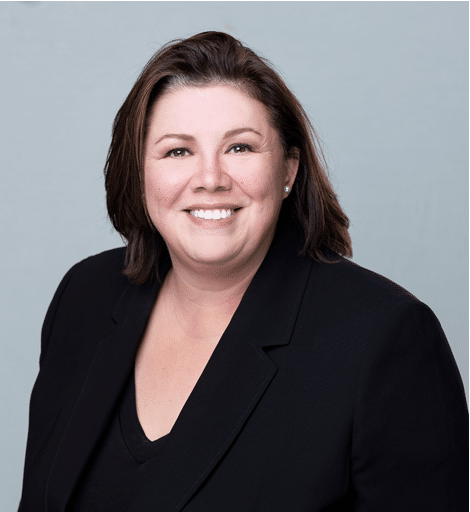

Trish Goulet
Dr. Trish Goulet is a member of Peter Ballantyne Cree Nation. She brings a wealth of knowledge and experience to her position as staff lawyer with the Nanaimo Indigenous Justice Centre.
Dr. Goulet earned her Juris Doctor and Master of Laws degrees at the University of Manitoba. Following several years as a litigator, she earned her PhD in Public Policy from the University of Regina. Her doctoral research focuses on the diffusion of Indigenous Cultural Safety Training programs across five Canadian provinces. Prior to joining BCFNJC, Dr. Goulet spent five years as a professor and lawyer at the University of Saskatchewan. She has provided policy advice to federal ministers in the areas of Indigenous Cultural Safety, regulation of professions, and access to care for Indigenous peoples.
Dr. Goulet is committed to providing culturally safe legal services to her clients across Vancouver Island.
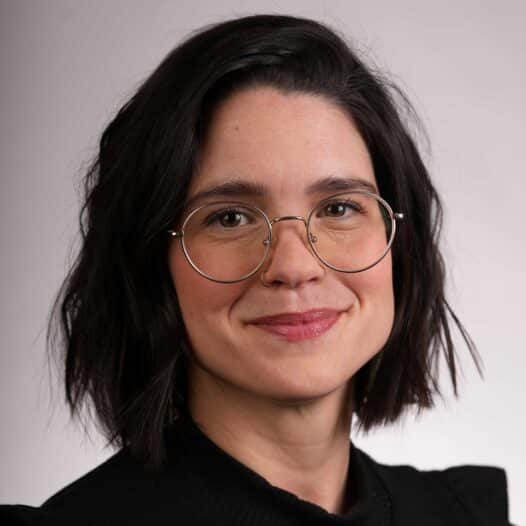

Cassandra Gouschuk
Cassandra Gouschuk (She/Her) is the Director of Work for Women, 2S+, Youth and Education. Cassandra joined the BC First Nation’s Justice Council in January 2023. Cassandra is a White settler and grateful guest on the Syilx territory.
Cassandra holds a Master of Social Work Degree from the University of British Columbia Okanagan and a Bachelor’s Degree in Child and Youth Care Counselling from Douglas College. Cassandra has worked alongside Indigenous youth and families impacted by the Child Welfare system for more than 15 years. Cassandra is honoured to be a part of BCFNJC and their work toward reform of current systems and restoration of First Nations systems.
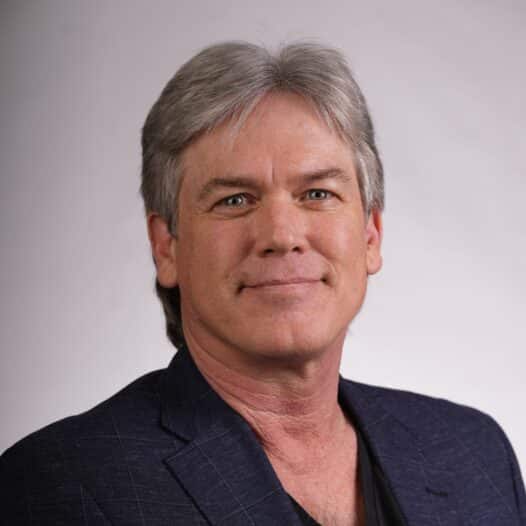

Craig Gulka
Craig Gulka is a highly skilled and versatile professional with a diverse background in the fields of electrical engineering and information technology. With over three decades of experience as an electrician and service technician, Craig has honed his skills in troubleshooting, repairing, and maintaining complex electrical systems. His expertise in these areas led him to pursue a career in IT, where he currently works as a desktop and network technician.
Craig holds a CompTIA A+ certification, which demonstrates his proficiency in a wide variety of IT areas, including installation, configuration, and maintenance of hardware and software. He has a wealth of experience in IT support, network administration, and computer repair, and he stays up to date with the latest advancements in technology.
Craig is also a strong advocate for Indigenous reconciliation, and he is proud to work at the British Columbia First Nations Justice Council. His dedication to this important cause is a testament to his strong moral compass and desire to effect positive change in his community.
In addition to his technical skills, Craig is also an accomplished musician who enjoys playing the guitar in his spare time and also enjoys hitting the open road and embarking on exciting road trips with his wife Leslie. Craig also cherishes spending time with his grandkids, nurturing their growth and development with his love and guidance.
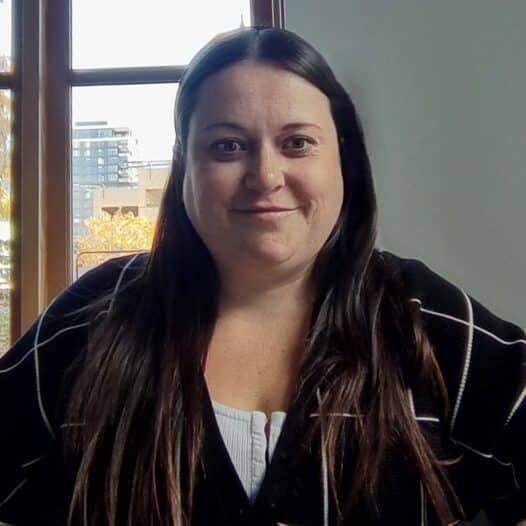

Laura Huntington
Laura was born and raised as a guest on the unceded and traditional territory of the Syilx Okanagan Nation and continues to reside on Westbank First Nations land with her husband Jordan, their four children, and three cats.
Her passion for justice led her to complete a Social and Criminal Justice Diploma at Okanagan College in 2024, with a focus on alternative justice measures, Indigenous culture and history, and systemic marginalization. Laura is a lifelong student, eager to learn and understand differences. Prior to joining the BCFNJC, she volunteered as an Outreach Worker for H.O.P.E., an organization dedicated to serving exploited women in the community, and participated in Restorative Justice initiatives through the Penticton RCMP detachment.
In her spare time, Laura enjoys being in nature, especially by the lake, painting, spending time with her children, and dancing.
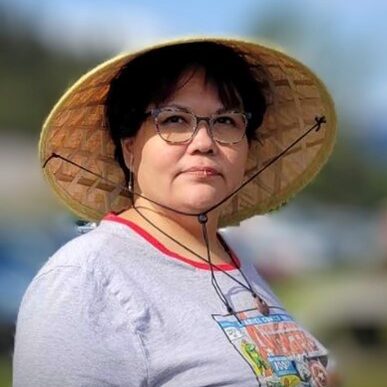

Cheryl Johnson
Cheryl has been a guest on the unceded territory of the Lheidli T’enneh First Nation since 2000. She moved here from the Lax Kw’alaams, which is one of the 9 allied tribes of the Ts’msyen Nation. Prince Rupert is where she was born and raised.
Cheryl received her social service worker diploma and life skills coaching certificate from the College of New Caldonia in Prince George. For the past 10+ years, she has focused on expanding her work experience. She has experience supporting previous clients with the Ministry of Children and Families Development (MCFD), the Ministry of Social Development and Poverty Reduction (income assistance), Persons with Multiple Barriers/Persons with Disabilities (PWD), the Native Courtworkers and Counselling Association of BC, school districts, obtaining and understanding mental health assessments, and housing support.
Cher works with TIP (trauma-informed practice) and a strength-based approach to better meet and understand where the client is at. Through this approach, she feels that she can better support her clients with their physical, mental, psychological, and spiritual needs.
Cher is very excited about being an Auntie with the BC First Nations Justice Council. Cher’s goal as an Auntie is to be safe, support, and advocate for Indigenous peoples.
On her down time, Cher can be found with her children or granddaughter or out with her animals, possibly harvesting traditional medicines and teas, chasing waterfalls, or simply puddle jumping.
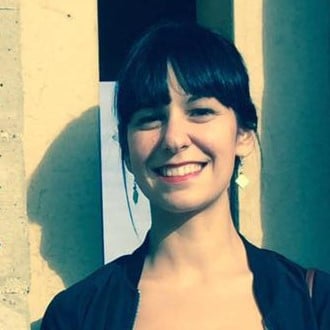

Christianne Kearns
Christianne has over 10 years of progressive leadership experience working for/with First Nations in BC, including the Okanagan Nation Alliance, the First Nations Health Authority, the Rural and Remote Division of Family Practice and Indigenous Services Canada in Ottawa. She completed her master’s in public policy and administration from Concordia University, focusing her research on a critical analysis of the “neutrality” of federal program evaluation of the child welfare system and the gross over-representation of Indigenous families within it.
Christianne brings her background in social justice to her work and is passionate about reconciliation and decolonization. She was born and raised in Blind River, in Northern Ontario, on the traditional homelands of the Anishinaabe. She is of French-Canadian and Scottish decent. Christianne is a multi-instrumentalist and in a former life was a touring musician. She gratefully lives with her husband and two small children in Oliver, in Syilx ancestral territory.
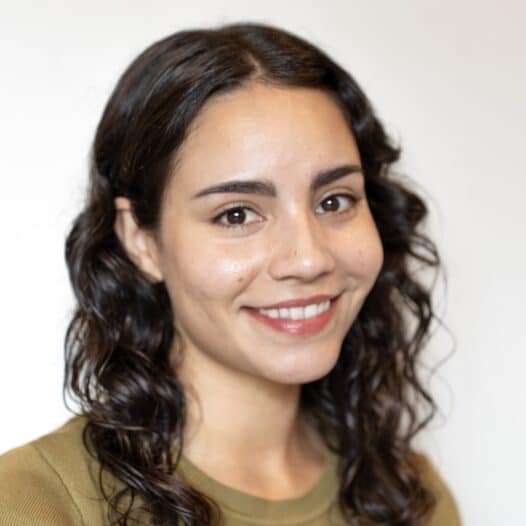

Robyn Keeler
Robyn joined BCFNJC as a Virtual Client Navigator. She is a proud Blackfoot woman on her paternal side where her family comes from the Kainai First Nation in Alberta. Robyn’s professional background was mainly in healthcare but decided to pursue a different career path to support Indigenous people in a more direct way, seek reconciliation and a fair trial among many other issues that Indigenous people face.
She is grateful to live and work as a guest on the traditional territories of the shíshálh (Sechelt) Nation.
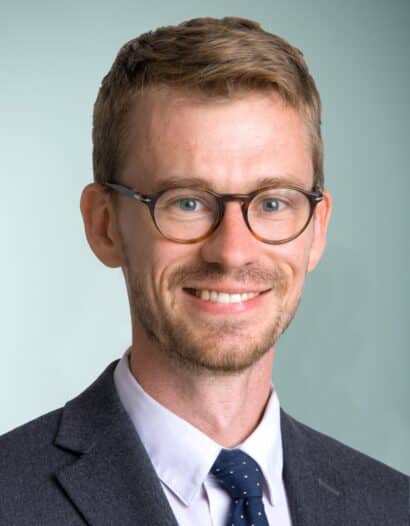

Alexander Kirby
Alexander Kirby works as a police accountability lawyer within the Police Accountability Unit at the BC First Nations Justice Council. He came to BCFNJC after working as an associate at a small firm specializing in constitutional, administrative, and s. 35 rights and title litigation. He has appeared at all levels of court in British Columbia, as well as at the Federal Court and the Supreme Court of Canada.
Prior to his call to bar in 2020, Alexander clerked at Supreme Court of British Columbia and articled with the Department of Justice.
Alexander earned his J.D. from the University of British Columbia in 2018, where he was awarded the Law Society Gold Medal. He also holds a Master of Arts in History from the University of Toronto and a Bachelor of Arts from Mount Allison University. During law school, he worked at UBC Indigenous Community Legal Clinic and the Law Students Legal Assistance Program.
In his spare time, Alexander enjoys hiking and camping, reading, and crafting misshapen pottery.
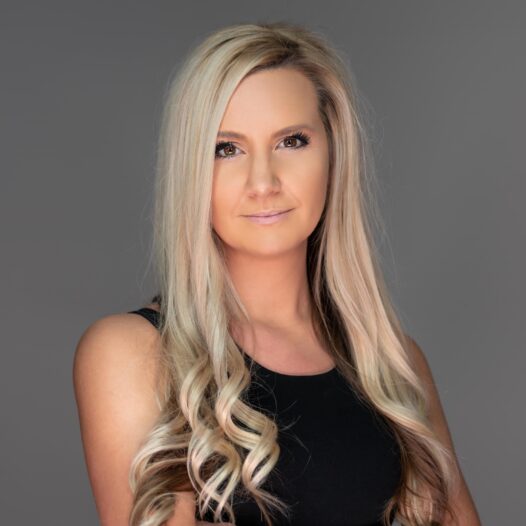

Chantelle Locke
Chantelle is one of the Regional Human Resources Director for the BC First Nation’s Justice Council. She is grateful to work out of the head office in Westbank that is located on the ancestral, traditional and unceded territory of the Syilx Nation.
Having worked in Human Resources since 2012, she is honored to bring her experience to support the BCFNJC in a way that aligns with and supports the strategy, culture and values.
Chantelle earned her diploma in Human Resource Management from the Northern Alberta Institute of Technology (NAIT) in Edmonton, AB. She is registered as Member of the Chartered Professionals in Human Resources of BC & Yukon (CPHR).
Chantelle’s Indigenous background is on her father’s side. Her family belongs to Spô’zêm (Spuzzum) First Nation located in Nlaka’pamux territory. Her father represented the Spuzzum community as Chief for over a decade. Growing up she has spent many hours with her family out on the land. In her spare time, she still enjoys spending as much time as possible outdoors and on the land with friends and family
Cody Lucas
Cody Lucas is a staff lawyer based in Kelowna and Merritt. He is a young Métis man residing in Kamloops, BC. Cody’s personal experience growing up in the foster care system has been the driving force behind his decision to pursue a career in the legal field. This has ultimately led him to join the BC First Nations Justice Council. Cody holds an undergraduate degree in Philosophy and English and has successfully completed his law school education at Thompson Rivers University. During his time at the university, Cody received recognition for his exceptional performance in administrative law, which subsequently led to his employment by the university for Indigenous law research.
Prior to his current role, Cody has worked as a lawyer in a non-profit legal clinic, focusing on family and criminal matters. He also possesses experience in handling general litigation as a lawyer at a private law firm, where he primarily represented business owners dealing with contract disputes.
Apart from his professional pursuits, Cody has a strong passion for sports and enjoys spending quality time with his friends and family. He is an avid football fan and has been actively involved in baseball for over 13 years. Additionally, Cody is a devoted pet owner and deeply cares for his two cats.
Cody is enthusiastic about his new role with the BC First Nations Justice Council. He is eager to contribute to the work and mission of the Council.


Natalie Martin
Natalie Martin (she/her) is the Director of Communications for the BC First Nations Justice Council. Natalie is a strategic communications leader with almost two decades of experience building teams and engaging dynamic audiences across a variety of industries. An enthusiastic people-person that leads with empathy and humour, Natalie is known for collaborating with everyone in the room to move things forward. Natalie has worked agency-side as Vice President at Talk Shop Media, in-house as Director of Communications at Bench, and represented 1-800-GOT-JUNK?, and O2E Brands as a Public Relations Manager. Career highlights include building the PR strategy for the BC Cancer Foundation and Habitat for Humanity of Greater Vancouver. Most recently, Natalie supported strategic communications, event management and stakeholder relations with Snuneymuxw First Nation as they hosted the largest Junior All Native Tournament to date. Natalie is a White settler and grateful guest on the traditional territories of the xʷməθkʷəy̓əm (Musqueam), Sḵwx̱wú7mesh (Squamish), and səlilwətaɬ (Tsleil-Waututh) Nations.
Natalie is honoured to explain to her two daughters (Zuzu and Mabel Drew) that they go to daycare during the week so that their mom can support the work of First Nations Leaders as they advance genuine, meaningful transformation of the criminal justice and child welfare systems in BC.
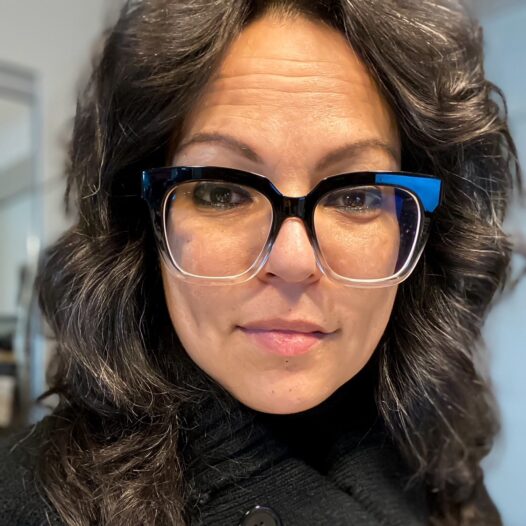
Tina Miller

Tina Miller
Tina is a member of the Nisga’a Nation (maternal) and non-Indigenous (paternal) and has lived on Syilx territory also known as Kelowna and West Kelowna, B.C. for over 20 years.
She has a Bachelor of Business Administration (2016), has co-organized grassroots level annual MMIWG2S+ vigils in Kelowna (2014-2019) and has volunteered with the Patient Voices Network, BC Patient Safety Quality Council, and the Health Standards Organization of Canada (2017-2022).
Tina rejoined the BCFNJC in 2023 as Researcher focusing on the Indigenous Women’s Justice plan, she has worked as Administrative Coordinator, Gladue Coordinator and Training and Education Coordinator – Gladue Services (2019-2021) with BCFNJC. She has also worked as a residential support worker in homeless shelters, supportive housing, short-term interim housing, and rapid rehousing programs (2019-2022) working with adults struggling with a variety of issues including substance use and mental health. She also works part-time with the BC Society of Transition Houses as Research & Outreach Coordinator on the Cedar Blankets: Building Wraparound Supports & Reducing Barriers for Indigenous Women and Children to Transition Houses and Safe Homes which is a 5-year projected funded by WAGE (March 2022-current).
For over 20 years she has raised her four children as a single mother and is a Gigi to two grandsons. Being a mother and Gigi is one of her most important roles. Her children and grandchildren are her motivation and inspiration on breaking intergenerational cycles and healing, so much so, she got a tattoo that says, “Building children is easier than mending adults” on her left forearm as a permanent reminder to not give up on the inner work, for herself, her children, her grandchildren and future generations to come.
She is grateful and honored to be a part of the team at BCFNJC walking toward, “BC First Nations children and families thriving in peace and security, their dignity and well-being supported by a trusted and representative justice system.”
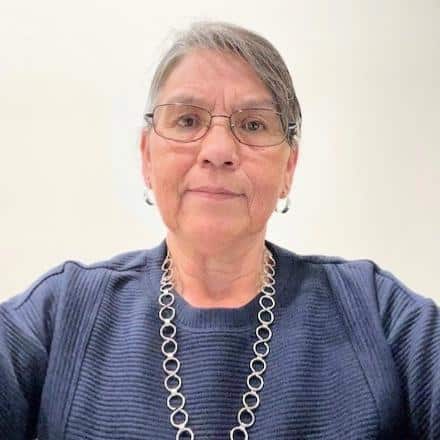

Patricia Mortensen
Patricia Mortensen is a member of the Nee Tahi Buhn Band and currently serves as the Legal Assistant at the Prince George BCFNJC, located on the unceded homelands of the Dënéndeh, Dakeł Keyoh, and Lheidli T’enneh Nations.
She returned to work out of retirement to contribute to improving the quality of service to Indigenous peoples. Patricia has previously gained valuable experience working with the Vanderhoof RCMP Detachment, Fort St. James RCMP Detachment, Vanderhoof Mental Health & Addictions, Vanderhoof Provincial Court, Prince George Provincial Court, Vanderhoof Ministry of Children & Family Development, and the Prince George College of New Caledonia.
Patricia is pleased to share her knowledge and experiences with the BC First Nations Justice Council. In her free time, she enjoys camping, bike riding, traveling, and spending time with her husband, fur baby, children, and grandchildren.
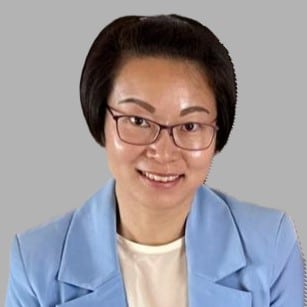

Amy Ng
Amy Ng is a staff lawyer at the Surrey Indigenous Justice Centre. She is non-Indigenous and is a former immigrant from Hong Kong. Amy is honoured to work on the unceded traditional territories of the Semiahmoo, Katzie, Kwantlen, and other Coast Salish Peoples.
Before attending law school, Amy completed a Bachelor of Arts with a major in Criminology and a minor in Legal Studies at Simon Fraser University. Upon graduation, Amy worked as a paralegal in Vancouver for a few years before deciding to attend law school.
Amy attended Robson Hall, Faculty of Law at the University of Manitoba where she received her Juris Doctor. In her second year of law school, Amy competed in Robson Hall’s annual mock trial competition and received an honourable mention. Amy also competed in the Fourteenth Annual Robson Hall Negotiation Competition and was among the top 32 finalists.
During her last year of law school, Amy was a clinical criminal law extern at the University of Manitoba Community Law Centre. When defending clients and helping them resolve their criminal matters as an extern, Amy found her niche in advocacy. The externship experience influenced Amy’s decision to pursue a career in criminal law.
Upon law school graduation, Amy gained more courtroom experience when articling with a notable criminal defence law firm in Winnipeg and further developed her skills and interest in criminal law. In her spare time, Amy enjoys spending time with her two Beagles, family, and friends. She likes grooming her Beagles and doing grocery shopping.
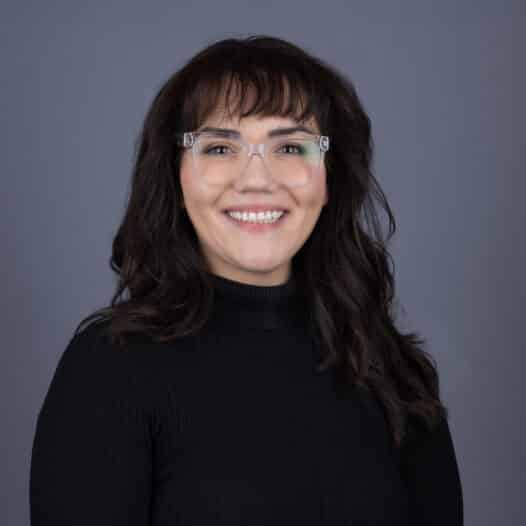

Alexis Olsen
Alexis Olsen is a proud member of the Neskonlith Indian Band, part of the Secwepemc Nation.
Throughout her career Alexis has gained experience in stakeholder management housing initiatives and community development. Her work has included overseeing programs for youth and family welfare creating initiatives that enhance social and independent living skills.
Her entrepreneurial venture further honed her strategic planning, financial management, and innovative thinking, making her skilled at managing large-scale projects and crafting strategies aligned with long-term community goals.
These experiences have strengthened her leadership and communication abilities, vital in her commitment to contributing to a more inclusive and prosperous future for Indigenous societies.
Outside of her professional life, Alexis enjoys spending time with her two chihuahuas and her husband trying a new restaurant, yoga or simply enjoying time at home.
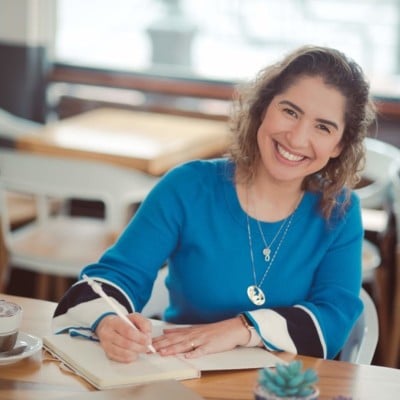

Nidia Panizza
Nidia Panizza (she/her) took a leap of faith from Brazil to beautiful British Columbia back in 2017, accompanied by her husband and daughter, all with the dream of starting a new life in Canada. She’s deeply grateful to call BC home and feels honored to reside on the traditional and breathtaking lands of the xʷməθkʷəy̓əm (Musqueam) peoples.
With over 14 years of experience in marketing and communications across various industries, such as Alcoa Aluminum and Merck, Nidia has honed her skills in content creation, project management, and social media.
Nidia has always dreamt of leveraging her skills and creativity to positively impact people’s lives. That’s why she’s beyond proud and happy to be a part of BCFNJC. It’s more than an amazing job to her; it’s an opportunity to contribute to something meaningful and to help make positive changes in Indigenous communities, thereby fostering a better and more respectful world for all of us.
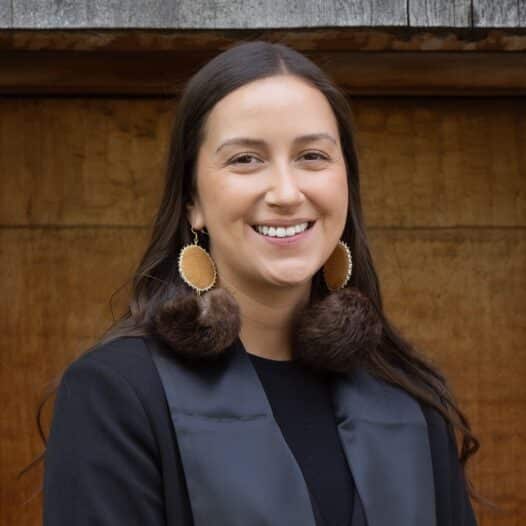

Brianna Patrick
Brianna Patrick (she/her) was born and raised in Winnipeg on Treaty One territory and is a proud member of Roseau River Anishinabe First Nation in southern Manitoba. She joined BCFNJC in 2024 as a summer student with the Legal Aid Transition team and has since graduated from law school and returned to the organization as an articling student.
Brianna holds a BSc from the University of Toronto in Environmental Science and a J.D. from the Peter A. Allard School of Law with a specialization in Indigenous Legal Studies. While at law school, Brianna participated in a semester-long field course with Professor Robert Clifford in the W̱SÁNEĆ community to learn about Indigenous law by engaging in land-based learning practices and hearing from community members, knowledge holders, elders, and educators. She is committed to applying both her personal life experiences and educational knowledge to engaging in a culturally informed legal practice and to ensuring that Indigenous voices are heard and uplifted for generations to come.
In her free time, Brianna enjoys spending time outdoors and practicing beadwork.
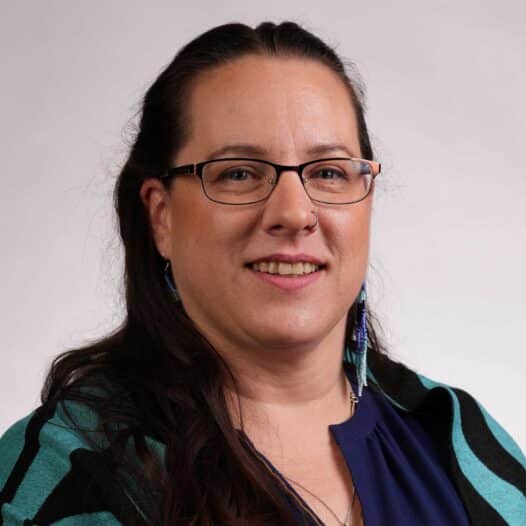

Erin Patterson
Originally from the Upper Similkameen Indian Band, Erin grew up in Houston and has lived in Prince George since the age of 11. Their academic background includes studies in criminology and social work at the College of New Caledonia, followed by a focus on social work at the University of Northern British Columbia. Erin brings over 12 years of experience in Gladue work to the organization.
Throughout their career, Erin has been actively involved with several organizations in Prince George, consistently working to support and uplift the local Indigenous community. Their passion for justice, healing, and community engagement continues to guide their work in this leadership role with the Indigenous Justice Centre.
Outside of work, Erin enjoys spending quality time with their husband and two children. They love camping, fishing, kayaking, and being outdoors with family.
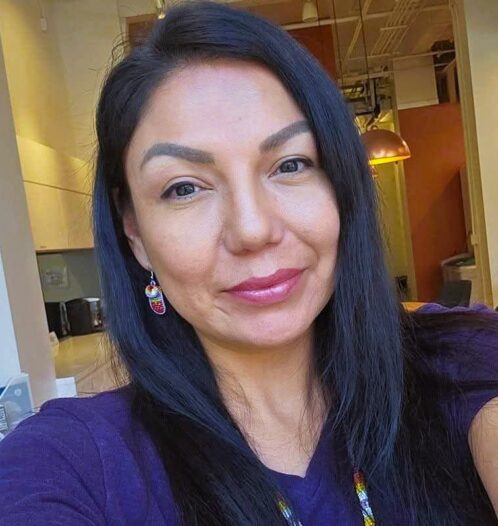

Raven Prince
Raven Prince is Ojibway from Manitoba and a proud mother of three. She joined the BC First Nations Justice Council’s Vancouver office in February 2024 as an Office Administrator and was promoted to Office Manager in August 2024.
Raven studied Human Resources at Capilano University and brings a strong educational foundation to her leadership role.
Outside of work, Raven enjoys playing softball, dancing Jingle dress, volunteering, and beading. A highlight in her journey was being one of 300 youth selected to dance in the opening ceremony of the Vancouver 2010 Winter Olympics. She is also a recipient of the Queen’s Diamond Jubilee Medal for volunteerism, awarded in 2012.
Raven lives and works on the unceded territories of the Coast Salish peoples: səl̓ilwətaɁɬ təməxʷ (Tsleil-Waututh), šxʷməθkʷəy̓əmaɁɬ təməxʷ (Musqueam), and Skwxwú7mesh-ulh Temíx̱w (Squamish) Nations.
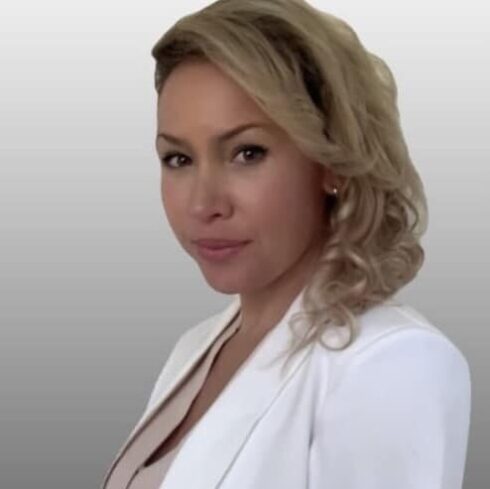

Jacqueline Reed
Jacqueline is a member of Red Pheasant Cree Nation, Sask. in Treaty 6 territory. She is a mother of two sons and one English bulldog. She holds a B.A. from the University of Northern British Columbia (2004) and her J.D from the University of Saskatchewan (2008).
She completed her articles in Smithers, BC and was called to the BC Bar in 2011. She started her career at the Attorney General Crown Prosecution Services out of the Prince George office. From there, she ventured into her own law practice out of her home community of Vanderhoof, where she specialized in family law and child welfare proceedings. Since 2014, Jacqueline has specialized primarily in family law representing clients in both the provincial and supreme courts of British Columbia. She has extensive background in litigation and has experienced success in her trial work.
In her role as staff lawyer in the Prince George office, Jacqueline looks forward to strongly advocating for parents whose families are subject to child welfare proceedings.
Shannon Rehlau
Shannon, born and raised in Winnipeg, Manitoba, is a member of the Couchiching First Nation in Treaty 3 Territory near Fort Frances, Ontario, where her family harvests wild rice since time immemorial. Shannon’s heritage on her mother’s side is Anishinaabe, Mohawk, French, and German, and on her father’s side, English. New to Vancouver in 1979, and a long-time resident in the Tri-cities area, Shannon, acknowledges the lands upon which she lives and works on as the ancestral, traditional, and unceded territories of the Kwikwetlem, Katzie, Kwantlen, Semiahmoo, and Tsawwassen Nations.
Shannon brings over 40 years of administration experience, and more, to her position as Office Manager, and continues to live the values, mission and vision that align with those of the BCFNJC; to be respectful of all ancestral practices, customs, cultures, and traditions, while supporting the well-being of all indigenous peoples now, and in the future.
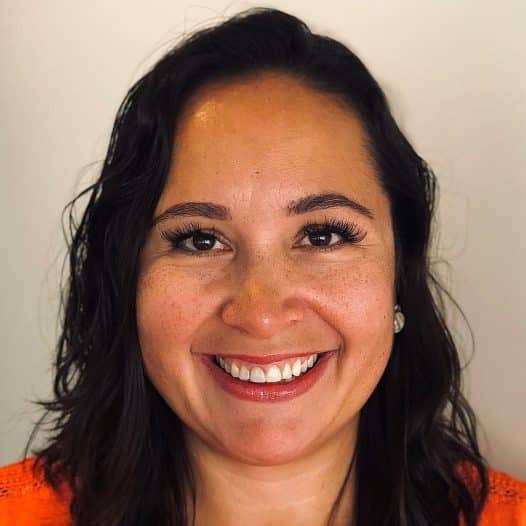

Stephanie Ringham
Stephanie is a certified Paralegal and the Legal Supports Supervisor for the Indigenous Justice Centres.
Stephanie was born and raised in Kitimat, B.C. and is a member of the Haisla Nation. She moved to the Okanagan in 2003 and is thankful to live on the ancestral and unceded traditional territory of the Syilx Nation.
Stephanie has worked in the legal field since 2005 and obtained her Paralegal Certificate with Capilano University in 2011. She has worked in a variety of different legal fields and is excited to bring her knowledge and experience of the legal industry to the BCFNJC and to be part of the implementation of the First Nations Justice Strategy.
In Stephanie’s spare time, she enjoys spending time with family, reading, and enjoying the many outdoor activities the Okanagan has to offer. She has one daughter that keeps her busy with her own extracurricular activities and together they enjoy learning and exploring their culture and implementing these teachings into their daily lives.
Geelah Roches
Geelah Roches (she/her) is a Legal Assistant in our Victoria Indigenous Justice Centre.
Geelah comes to the BCFNJC and first acknowledges she is a guest and has the privilege to work within the ancestral, traditional and unceded homelands of the Lekwungen, Songhees, Esquimalt and WSÁNEĆ peoples. Geelah spent 8 years as a Native Courtworker with the Native Courtworkers Counselling & Association of British Columbia. Previously working in Northern, BC, Vancouver Island, and a brief time in the Kootenays NCW’s offices. Travelling to remote First Nations communities and the circuit court locations, Geelah stood beside community members advocating on their behalf. These gained experiences provided a solid grounding in the mechanics of the colonial system but most importantly, gave her a strong sense of belonging and compassion in helping people find their voice. It is Geelah’s desire to continue advocating for Indigenous people and plans to do that with the BCFNJC.
Geelah is a proud member of Iqaluit (Frobisher Bay) Nunavut Nation from her mother’s side/European ancestry from her father’s side. Geelah shares a strong commitment to assisting community members and has a true passion of collaboration. On the personal side, Geelah is a mother to one child, now an adult, and enjoys grounding herself in nature, lake swimming and trying not to crash her drone.
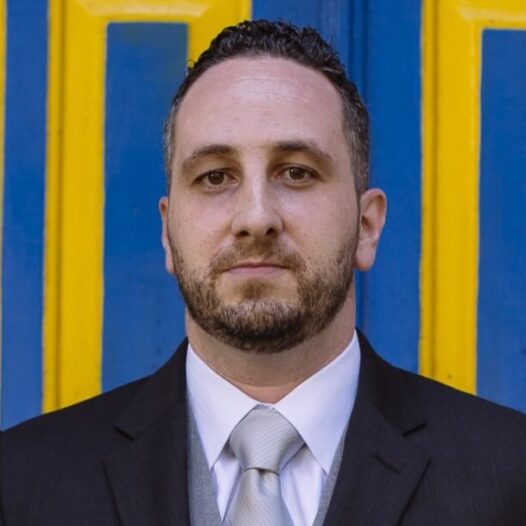

Mauricio Salgado
Mauricio works as a Legal Assistant in the Vancouver IJC. Originally from Brazil, he is a foreign-trained criminal lawyer with over 16 years of experience. In his previous role as a Judicial Law Clerk at the Court of Appeal of the State of Sao Paulo, he assisted Judges in analyzing appeals and reviewing first-level decisions or sentencing.
In 2019, Mauricio moved to Canada with the goal of professional and personal growth. He acknowledges and respects that he is grateful and honored to live and raise his family on the unceded traditional territories of the xʷməθkʷəy̓əm (Musqueam), Sḵwx̱wú7mesh (Squamish), and səlilwətaɬ (Tsleil-Waututh) Nations.
Driven by his passion for law, Mauricio joined a traditional law firm in North Vancouver, where he supports lawyers and Federal Crown agents. Through this experience, he has been able to adapt his knowledge to the Canadian criminal system and gain insights into other areas such as family law, child protection (CFCSA), personal injury, and Wills.
Mauricio is dedicated to making effective and positive impacts on the community. He takes pride and excitement in bringing his skillset and expertise to support the staff lawyers and provide high-quality legal assistance to Indigenous peoples. He recognizes the constant barriers they face within the colonial justice system.
During his free time, Mauricio enjoys spending time with his family, traveling to interesting destinations, and engaging in his favorite sports (essentially all of them).
Kirstin Scansen-Isbister
Kirstin Scansen-Isbister is a nîhithaw iskwew (Woodland Cree woman), and a member of the Lac La Ronge Indian Band in northern Saskatchewan.
Kirstin holds a Bachelor of Arts in Sociology and Political Science from the University of British Columbia and a Master of Arts in Indigenous Governance from the University of Victoria. She is passionate about serving Indigenous peoples, communities and Nations and has spent her career thus far in program development and coordination roles, health, anti-violence and environmental policy research and youth and student support services.
Driven by a commitment to honouring, respecting, and protecting all non-human relatives in the animal and plant worlds, Kirstin is on a life-long journey to learn traditional Cree land-based skills and knowledges. Kirstin’s identity is inextricably linked to the homelands of her ancestors. She enjoys berry, mushroom, and medicine picking with her family in northern Saskatchewan. Kirstin loves to spend time outdoors, and travels BC and beyond for hiking, camping, fishing, swimming, cycling and snowshoeing.
Kirstin lives with her family and their beloved cats on the traditional, ancestral and unceded territory of the kʷikʷəƛ̓əm (Kwikwetlem First Nation).
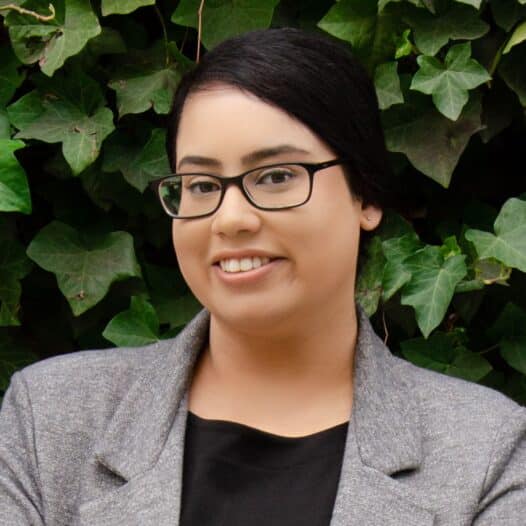

Amandeep K. Sehmbi
Amandeep K. Sehmbi is the Director of Gladue Services with the BC First Nations Justice Council (BCFNJC). She has been working with the BCFNJC since 2021 in different capacities, first as a legal reviewer and later also as a Gladue Report Writer. She opened her own criminal law firm in 2021 and continues to practice criminal defence largely for marginalized clients. In her current role with BCFNJC, she will be working to help expand the Gladue Department and to ensure that all Indigenous peoples are able to receive quality and timely Gladue Reports, as is their right.
Amandeep completed her Bachelor of Arts in Political Science and Economics at UBC in 2012, her Bachelor of Laws (Senior Status) from the University of Leicester, U.K in 2015 and her Master of Laws (Common Law) from Peter A. Allard School of Law at UBC in 2016. She was called to the Bar of British Columbia in 2018 and has practiced exclusively in criminal defence and administrative driving offences. She takes pride in ensuring the best resolutions for her clients, which includes comprehensive probation plans and treatment and counselling options. It is her view that the systemic issues within the criminal justice system can be addressed, and that the disproportionate incarceration of Indigenous peoples can be reduced by a strong understanding and use of Gladue Reports.
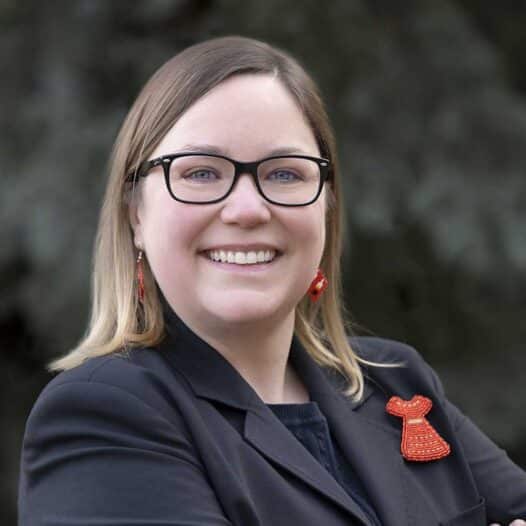

Miranda Seymour
Miranda is from the Lheidli T’enneh Nation. She was born and partly raised in Prince George, BC and partly raised in Calgary, AB. Miranda received her Indian Status through Bill C-3.
Miranda is honoured to have the opportunity to be a part of the transformative work of the BC First Nations Council and was excited to join the team in December 2023.
Miranda holds a Bachelor of Arts in Geography from the University of Northern British Columbia (UNBC). While at UNBC, Miranda was on the UNBC Women’s Rugby team and took part in a Field School to Guatemala. Miranda was a part of the inaugural law class at Thompson Rivers University (TRU). While at TRU, Miranda helped establish and became the founding Vice-President of the Indigenous Law Students’ Association and participated in the Kawaskimhon Moot (2013).
After law school, Miranda articled with the Ministry of Justice in Victoria. Her articles included rotations with the Aboriginal law section, Office of Legislative Counsel and the Crown Counsel office in Prince George. Miranda was called to the British Columbia bar in 2015 and although she engaged in primarily solicitors work, her early experience included assisting senior counsel in criminal, family and civil law matters.
Miranda loves living in Northern BC and appreciates the unique needs and perspectives of those that live in this area of the Province. She is grateful to be able to remain working in her hometown and looks forward to spending time at the Prince George Indigenous Justice Centre. Miranda also looks forward to drawing on her varied education, volunteer and work experience to contribute to the important work of the BC First Nations Justice Council.
Miranda obtained a Master of Laws (LL.M) through Osgoode Hall Law School in 2024 and is currently working to complete a Graduate Diploma in Legislative Drafting through Athabasca University. When not in school or at work, Miranda enjoys doing anything outdoors with her fur babies.
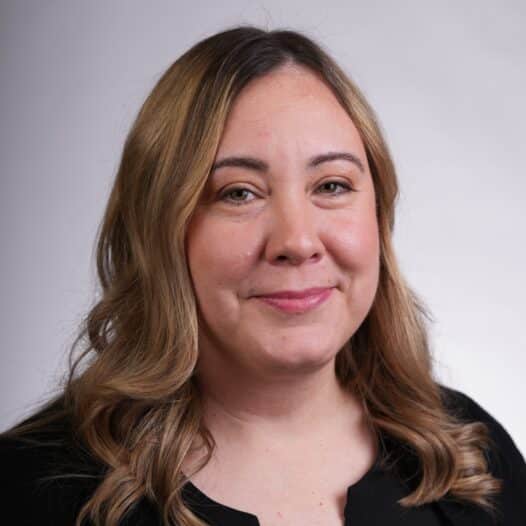

Rachel Smith
After earning her undergraduate degree from UNBC in Prince George, Rachel obtained her law degree from the University of Manitoba’s Robson Hall in Winnipeg. Rachel then returned to Prince George where she completed her articles. Called to the bar in BC in 2007, she commenced private practice the following year in Winnipeg, representing clients for many years primarily in the field of criminal defence. In 2015 Rachel opened a law office in the northern city of Thompson Manitoba. As part of that practice Rachel represented people charged with criminal offences in numerous First Nations communities in the surrounding area. Her work in the north exposed her to the harsh reality of life in Canada for the people in the communities she served and gave her a passion for true justice.
Rachel is excited to do her part to help increase access to justice for Indigenous people with the BC First Nations Justice Council, and to get involved in the community of Vancouver where she will be the staff lawyer at the Vancouver Indigenous Justice Centre.
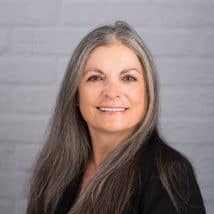

Sandra Staats
Sandra Staats has enjoyed a varied legal career. Spanning more than 27 years, she has practiced in the areas of criminal, family, child protection, poverty, general civil litigation and Aboriginal law. She has represented clients in both the Provincial and Supreme Court of BC as well as the Court of Appeal and the Supreme Court of Canada.
Between 2003 and 2017, Sandra practiced primarily in the area of Indian Residential School litigation. She assisted with the negotiation of the Indian Residential Schools Settlement Agreement, represented claimants with their claims for abuse suffered at Indian Residential School and assisted as co-counsel for Independent Counsel, appearing in the Ontario Superior Court, Ontario Court of Appeal and Supreme Court of Canada in an action to ensure that the confidentiality of residential school claimants was protected and that the release of records in residential school claims could only be done with the claimant’s consent.
Taking her role as a legal counsel seriously, she takes the time to listen and communicate with her clients as much as possible to ensure that they understand the legal process and that she provides effective legal representation.
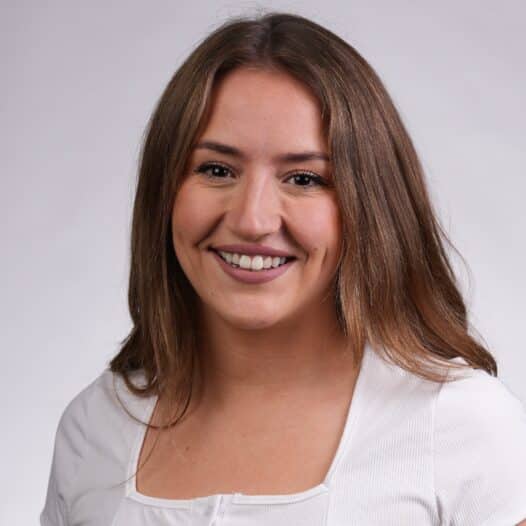

Angie Still
Angie is originally from Whitefish River First Nation, she now resides as a guest on the ancestral, traditional and unceded territory of the Ktunaxa people (Fernie, BC).
Angie’s Anishnaabe heritage comes from their paternal side with the majority of their family coming from M’Chigeeng First Nation on Manitoulin Island, Ontario. As an avid snowboarder, mountain biker and outdoor enthusiast, Angie is extremely grateful to now call BC home. She cares deeply about Indigenous peoples and is looking forward to working with the BC First Nations Justice Council to invoke real change within the justice system.
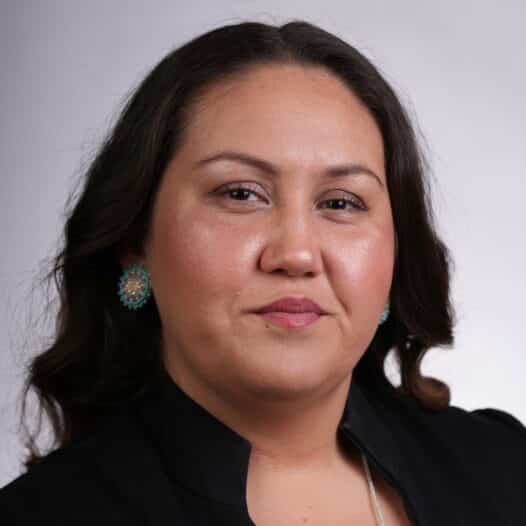

Condesa Strain
E. Condesa Strain is from the lands and waters of the xʷməθkʷəy̓əm (Musqueam), Syilx (Okanagan) and Secwepemc peoples. She grew up in the territory of her q̓ic̓əy̓ (Katzie) and qʼʷa:n̓ƛʼən̓ (Kwantlen) relatives. She is a proud mother of two children.
Condesa earned her Bachelor of Arts in Applied Criminology with Honours from Douglas College in 2018 and earned her Juris Doctor Degree from the Peter Allard School of Law in 2021. During her education she became passionate about the effects of colonialism on indigenous people and their contact with the criminal justice system. In 2020 Condesa worked as a student clinician at the Indigenous Community Legal clinic. And in 2022 she completed her articles with the Provincial Crown.
She cares deeply about making the process more relatable for clients. She is committed to bringing Respect, Reciprocity, and Humility into her practice.
In her spare time, she enjoys spending time with her family in nature and playing rugby in Vancouver with her club the Scribes.
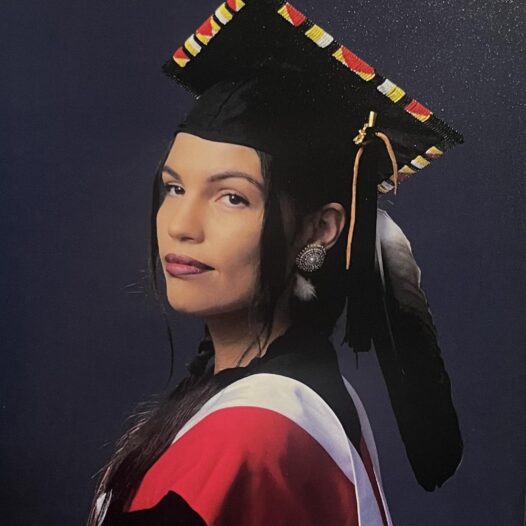

Olivia Thomas
Olivia (Šinákamina Ská Wiŋ) is a proud member of the Sioux Valley Dakota Nation. She has been a Gladue Report Writer with B.C First Nations Justice Council since 2023. Throughout her time in the Gladue Services Department, she has enjoyed participating in events hosted for Gladue related training purposes. Olivia coordinated a presentation on the Gladue Services Department for the Nanaimo Executives Association, delivered a speech on Gladue Report Writing for the Continuing Legal Education Society of B.C., and partnered with Osgoode Hall Law School to conduct a recorded interview with a previous Gladue client for the 9th National Conference on Indigenous Criminal Justice Post-Gladue. She holds a Bachelor of Arts degree in Indigenous/Xwulmuxw Studies through Vancouver Island University and is planning to pursue a Master of Arts in Indigenous Governance through University of Victoria. When not working to serve the Indigenous communities of B.C., she is at home with her children, at the sweat lodge, or spending time cherishing the Coast Salish world she is lucky enough to call home!
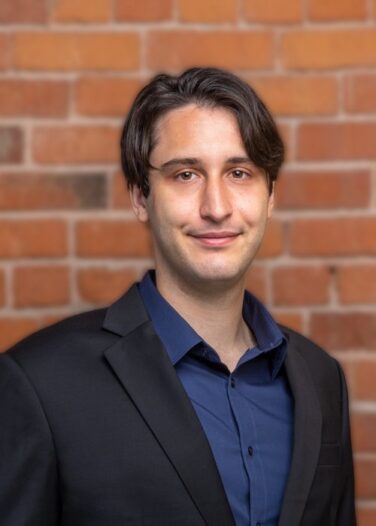

Liam Turnbull
Liam is grateful to the xʷməθkʷəy̓əm (Musqueam), Sḵwx̱wú7mesh Úxwumixw (Squamish Nation) and səlilwətaɬ (Tsleil-Waututh Nation), as a born and raised Vancouverite and a guest on their unceded territories. Liam is a policy lawyer with the BC First Nations Justice Council.
Liam was called to the bar in 2023. Before joining the BCFNJC and throughout his educational and professional experiences, Liam worked with various NGOs, the United Nations, and professors in both Indigenous rights and the international human rights field. He is committed to supporting Indigenous nations and doing what he can to help advance self-determination rights. Liam recently completed his Master of Laws (LLM) degree at UCL (University of London) and is grateful to the Galin Foundation and the Canadian Council on International Law for their generous support during his studies. His thesis focused on the intersection between Indigenous rights, social/economic rights and other areas of international law. Liam’s studies included research on the UNDRIP and An Act respecting First Nations, Inuit and Métis children, youth and families. Prior to his LLM, he articled at a labour and human rights law firm in Vancouver.
Outside of work, Liam enjoys hiking and exploring nature, trying new food, sports, creating and discovering music, and spending time with his family and friends.
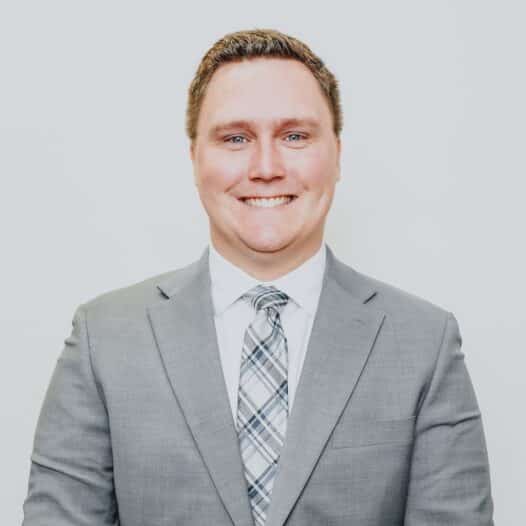

Joshua Vissia
Joshua is a proud member of the Hupacasath First Nation from Port Alberni. He was born and raised in the small town of Keremeos BC, in the Similkameen Valley.
Joshua moved to Abbotsford BC to attend the University of the Fraser Valley where he obtained a degree in Child and Youth Care. He then attended the Peter A. Allard School of Law at the University of British Columbia and obtained his Juris Doctor. While in law school Joshua was a member of the Indigenous Law Student Association. He also participated in the Indigenous Community Legal Clinic on the Downtown Eastside, where he assisted low-income Indigenous persons with their legal issues. Joshua completed his articles with a prominent firm in Chilliwack, BC and was called to the BC Bar in 2023.
Joshua is a Staff Lawyer at our Chilliwack IJC. He assists clients facing criminal charges, as well as parents and youth who have encountered the Ministry of Child and Family Development. He has passionate heart for providing effective, fair, and wholistic representation for Indigenous individuals and Youth.
Outside of the office Joshua enjoys spending time with his wife and sons, participating in water sports, and all things Disney. He is very grateful to be able to practice on the unceded traditional territory of the Stó:lö Nations.


Maxwell Wall
Max Wall is a staff lawyer at the Surrey Indigenous Justice Centre. He is non-Indigenous.
Prior to law school, Max completed a Bachelor of Arts with Honours in English and an Extended Minor in Philosophy. Max wrote his English Honours thesis on James Joyce’s Ulysses.
Max received his J.D. from the University of British Columbia’s Peter A. Allard School of Law. During law school, he was a student clinician at the Indigenous Community Legal Clinic and the Law Students’ Legal Advice program where he provided legal assistance to people in need. Max also competed the Peter Burns Mock Trial Competition. In addition to his criminal-law-focused course selection, Max completed a Specialization in Aboriginal Law. Prior to joining the BC First Nations Justice Council, he worked with leading Vancouver criminal defence lawyers and operated his own firm.
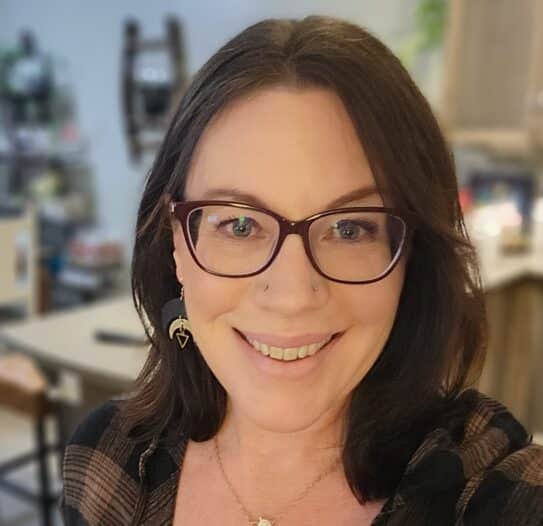

Kerri Widdup
Kerri was born and raised in the West Kootenay area and is a grateful settler on the unceded Traditional Territory of the Syilx people. She actively continues her education on the impacts of colonization on Indigenous individuals, families and communities, continued systemic injustices, and strategies to achieve better outcomes for Indigenous people involved in the justice system and proudly supports the pursuit of self-determination, sovereignty and justice for Indigenous peoples.
Kerri’s work and volunteer experience has been in the private, public and non-profit sectors in the legal field and with non-profit organizations in mental health advocacy, crisis support and outreach roles. She is a life-long learner and has found a welcome career shift from working as a paralegal to developing a thoughtful approach to staff training and wellness. Through her experiences working in the legal field and passion for holistic wellness, mindfulness, healing and resilience, she recognizes how meaningful training, cultural teachings, stories and approaches to achieving balance in our emotional, physical, mental and spiritual wellness can lead to positive transformation in workplace environments. Continued education in trauma-informed and equity informed leadership practices, cultivating safety, vicarious trauma and strategies to support resilience, all support her to carry out this role in a good way. Kerri is also guided and supported by the core values of the BCFNJC, culture, safety, respect, empowerment, trust, results, and by listening to and observing cultural teachings led by Indigenous Educators, Elders and Knowledge Keepers, when invited to do so.
In her spare time, Kerri can be found enjoying time with her spouse and son, reading, and studying. She is passionate about yoga, mindfulness and the mind-body connection and spends much of her spare time appreciating the roots of these practices as they relate to social justice.
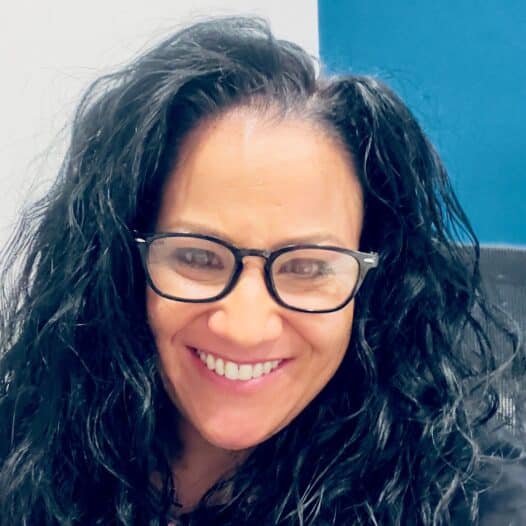

Melody Wilson
Melody Wilson is a member of the Tr’ondëk Hwëch’in Band and currently serves as the Legal Assistant at the Prince George BCFNJC, located on the unceded homelands of the Dënéndeh, Dakeł Keyoh, and Lheidli T’enneh Nations. She has worked in various Executive Assistant and Corporate Governance roles and is excited to bring her knowledge and experience to the BCFNJC and to be part of the implementation of the First Nations Justice Strategy.
When she’s not wrangling documents and tackling tasks, you’ll find her and her trusty canine sidekick (who thinks he is the boss) enjoying all four seasons in the wilderness or engaging in creative gardening.
“Behind every organized office is an assistant with ten tabs open and everything under control”
